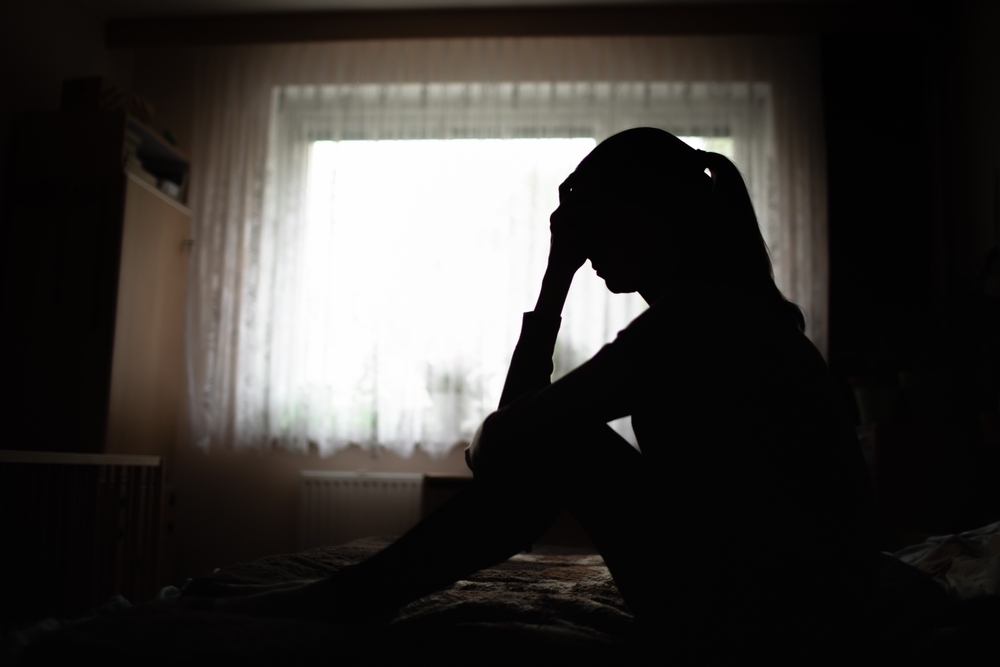


Patients struggling with their mental health have spoken out about feeling "lost" and like they "don't know where to turn" after coming to the end of the six months of government-funded therapy sessions... So why the limit? And should the support be extended?
As part of the Health Department, Jersey Talking Therapies offers free and confidential psychological therapy for islanders aged 18 and above.
The service is for people who experience a wide range of mental health difficulties – including depression, anxiety, stress, phobias, traumatic events, patterns of disordered eating and mild to moderate alcohol use difficulties.
The Jersey Talking Therapies team includes psychological therapists and counsellors who offer sessions which take place over six to 20 weeks, depending on the patient's needs.
But, as one patient told Express, some issues don't automatically disappear at the end of the period.
"I've struggled with my mental health for most of my life, so it's not something that's just going to go away after six months of therapy," she said.
When asked to explain why 20 weeks was the maximum number of free sessions provided through the service, the Director of Mental Health and Adult Social Care explained that this is the "standard" limit.

Pictured: Andy Weir is the Director of Mental Health and Adult Social Care.
Andy Weir said: “Jersey Talking Therapies provides specific evidence-based talking therapies (based on manualised protocols) and the 20 sessions limit is a standard part of this – it does not relate to demand or seeking to manage resources.
“This is one type of psychological treatment offered for certain types of presentations/problems. Sometimes, depending upon clinical need, booster sessions can be provided within two months of the end of treatment with JTT.
“For people who require a different type of psychological treatment (which may be longer) other types of psychological interventions are available, and people would be referred to these if clinically indicated."
He added: “It is not unusual for people to feel anxious towards the end of treatment; but this does not mean ongoing treatment is needed. If at the end of JTT treatment people still feel they need additional therapy, they should discuss this with the therapist involved.
"Importantly, there is always a range of crisis and counselling services available for any islander that needs this.”
Isabelle* is one of the patients who feels concerned about coming to the end of her therapy, and is calling for more ongoing support to be available to islanders free-of-charge.
She explained that she first accessed mental health services in Jersey after returning to the island after university.
"I had therapy at uni and felt that I struggled when this stopped, so wanted to start up again," said Isabelle.
"I first went to the Listening Lounge who then referred me to Jersey Talking Therapies."

Pictured: "The idea of talking to someone through a screen didn't really appeal to me..."
Following an initial assessment where it was decided that cognitive behavioural therapy would best suit her needs, Isabelle described feeling "really disheartened" when she found out the current wait was over 20 weeks to see online therapist and over 37 weeks for in-person session.
She added: "I had wanted in-person therapy as that is what I had at uni, and the idea of talking to someone through a screen didn't really appeal to me – but I chose the online therapy option due to the shorter waiting list."
Seven months after her initial referral, Isabelle started online therapy through Jersey Talking Therapies in September.
"Although I was hesitant about having an online therapist, I can't fault the service I've had so far," she said.
"I get on so well with my therapist. He's really easy to talk to and I have found that his input has had a positive impact on my life.
"That is one of the reasons why I am so upset about coming to the end of my sessions."

Pictured: "I get on so well with my therapist... I have found that his input has had a positive impact on my life."
Isabelle added that she was "completely unaware" that there was a 20-week limit on the therapy when she started until her therapist informed her after 16 weeks that he needed to seek approval to continue seeing her.
"This took a few weeks and even my therapist said that it disrupted the flow of the progress we had been making," she said.
After six months, Isabelle is now coming to the end of her 20 therapy sessions.
She said: "I feel really worried about coming to the end of therapy. I feel lost and like I don't know where to turn to for support once the sessions end.
"I can't afford to go private to carry on [with therapy], but even if I could then that would involve starting over and having to explain my issues and getting to know and trust a new therapist which seems so counterproductive.
"I feel like I've poured my heart out to my therapist and he knows me really well so it feels kind of sad that I'll just never see him again and he won't get to see any progress I make in the future."
Isabelle continued: "I was actually on the [Jersey Talking Therapies] waiting list for around 30 weeks so it seems crazy to me that I am entitled to less weeks of therapy than I spent waiting!
"I don't know what people are expected to do if they can't afford to pay for therapy privately?!
"I've struggled with my mental health for most of my life, so it's not something that's going to go away after six months of therapy."

Pictured: "I've struggled with my mental health for most of my life, so it's not something that's going to go away after six months of therapy."
She added that, if she was paying for the sessions herself, she would "definitely" want to continue.
"I can see the positive impact that it is having on my life, so I think it's awful that this isn't an option for people who can't afford private therapy," said Isabelle.
"Listening Lounge offers a maximum of six free counselling sessions, Jersey Talking Therapies has a 20-week limit... it just feel like there needs to be more ongoing support available.
"People who struggle with their mental health often do so for their whole life, so the support available needs to reflect that – and shouldn't only be accessible to those who can afford it!"
*names have been changed to protect patient anonymity.
Comments
Comments on this story express the views of the commentator only, not Bailiwick Publishing. We are unable to guarantee the accuracy of any of those comments.